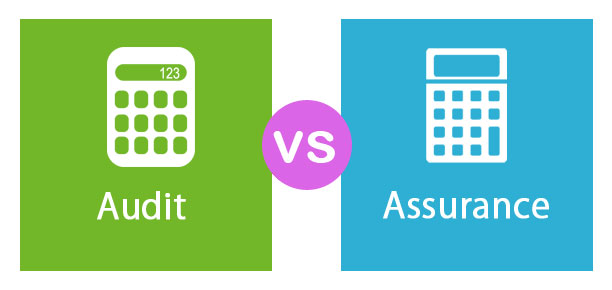
Audit vs. Assurance: Deciphering the Distinctions in Financial Oversight
Navigating the intricate realm of financial oversight requires a clear understanding of terms like audit and assurance.
Navigating the intricate realm of financial oversight requires a clear understanding of terms like audit and assurance. While these terms are commonly used, they carry distinct meanings and serve unique purposes in the business world. In this blog post, we'll delve into the key differences between audits and assurance services, shedding light on their individual roles and significance.
1. Unraveling the Definitions:
Audit:
An audit is a meticulous examination of an organization's financial records and statements. It is a systematic process designed to ensure the accuracy and fairness of financial information. Audits are often mandated by regulatory bodies and stakeholders, aiming to verify compliance with accounting standards and legal requirements.
Assurance:
Assurance services are broader in scope, encompassing various evaluations beyond financial statements. These services are intended to enhance stakeholders' confidence in the reliability and relevance of information, be it financial or non-financial. Assurance engagements include reviews, compilations, and agreed-upon procedures, offering a more comprehensive view of an organization's overall performance.
2. Scoping the Territory:
Audit:
Audits hone in on financial statements and internal controls. The primary objective is to ascertain whether the financial statements provide a true and fair representation of the company's financial position, performance, and cash flows. Audits are retrospective, focusing on historical financial data.
Assurance:
Assurance engagements cast a wider net, covering a diverse range of information. This can include operational performance, compliance with regulations, and sustainability reporting, among other areas. The scope of assurance services is tailored to meet the specific needs and objectives of stakeholders seeking assurance.
3. Independence and Objectivity:
Audit:
Independence and objectivity are critical for auditors. Maintaining a neutral stance ensures an unbiased evaluation, instilling confidence in the credibility of the financial information under scrutiny. Auditors adhere to strict professional standards and ethical guidelines.
Assurance:
Similar to audits, assurance engagements demand independence and objectivity. Professionals providing assurance services must remain impartial, fostering trust in the information being assured. A neutral stance is essential for enhancing the overall credibility of the assurance process.
4. Regulatory Implications:
Audit:
Regulatory bodies often mandate audits, especially for publicly traded companies. Entities like the Securities and Exchange Commission (SEC) or the Financial Reporting Council (FRC) set guidelines to ensure the accuracy and reliability of financial statements.
Assurance:
While regulatory requirements may drive some assurance engagements, others are initiated voluntarily. Organizations may opt for assurance services to demonstrate transparency and build trust with stakeholders, even in the absence of explicit regulatory mandates.
5. Reporting Distinctions:
Audit:
Audit reports are formal documents expressing the auditor's opinion on the fairness of financial statements. These reports detail findings, highlight material misstatements, and offer a conclusive opinion on the reliability of financial information.
Assurance:
Assurance reports vary based on the engagement. They may include positive or negative assurance statements, or reports on specific procedures performed. The content is tailored to align with the specific objectives of the assurance engagement.
Conclusion:
In conclusion, while audit and assurance share the common objective of instilling confidence in information, they differ significantly in their scopes, purposes, and the types of services they offer. Understanding these distinctions is crucial for businesses and stakeholders aiming to navigate the landscape of financial oversight effectively. Whether mandated by regulators or sought voluntarily, both audits and assurance services play pivotal roles in fostering transparency and accountability in the business world.











